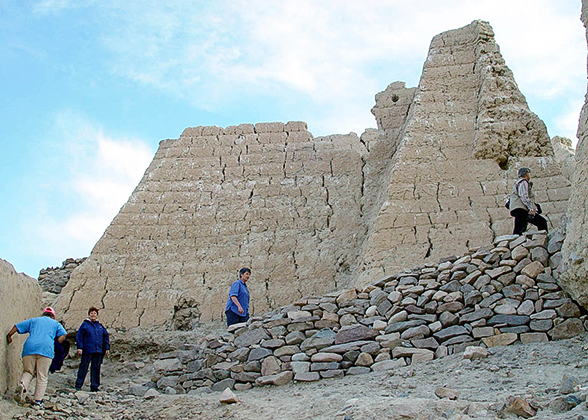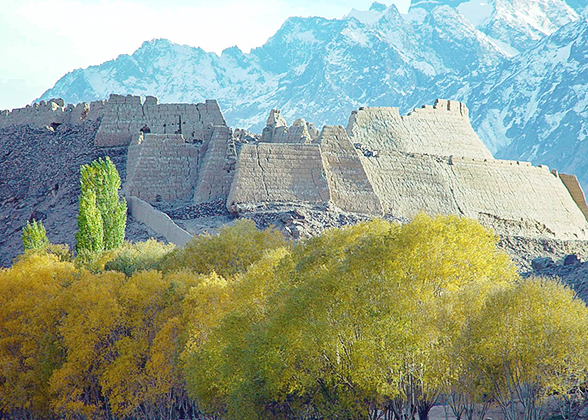Karakuri Lake and Stone City
Karakuri Lake
Karakuri Lake, situated at the foot of Mount Muztagata, lies 191 kilometers (about 120 miles) from Kashgar. It is 3,600 meters (about 11,811 feet) above sea level, 30 meters (about 98 feet) deep and with a surface of ten square kilometers (about four square miles).
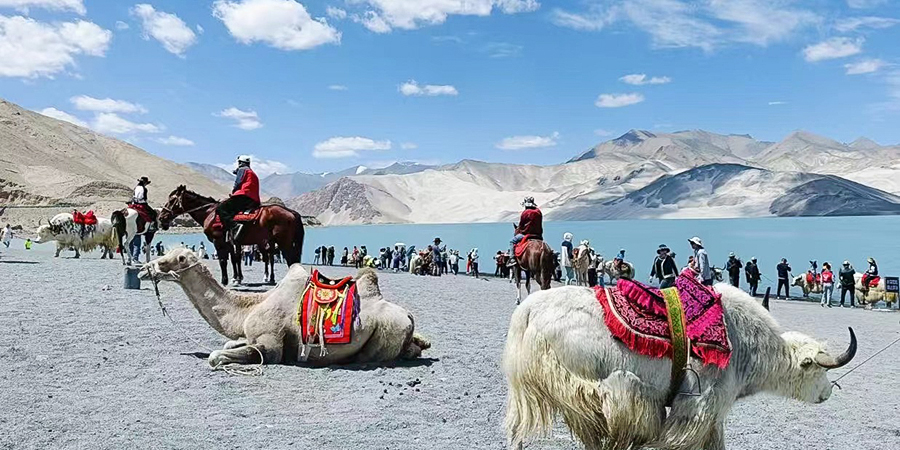 |
The lake is surrounded by a series of mountains, such as Mount Muztagata and Kongur Shan. At the lakefront, there is grassland with roaming flocks and herds. At dawn, Karakuri Lake looks as pure as a jade mirror. When the sun rises, it changes colors in the course of a few minutes from mauve to golden and then to light pink. The snow-covered mountain, green grass and livestock form reflections in the mirror-like water, creating a fair and charming picture.
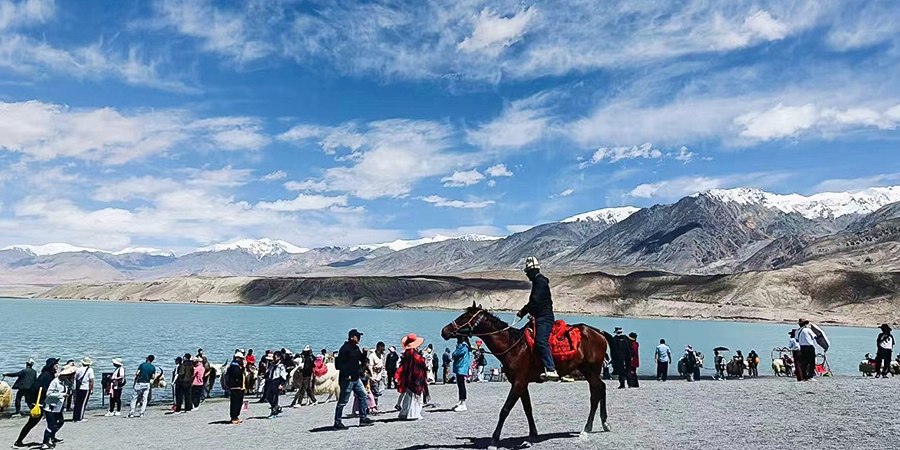 |
At the lakeside, there are yurts and frame houses of Tajik ethnic group providing rooms and board for visitors. You can also go out on the small rafts and enjoy yourselves in the scenic area. A reception center there facilitates rentals, yachts, camels, horses etc. in accordance with your needs. In addition, if you want to climb mountains, the encampment for mountaineering can allow you to fulfill your wish.
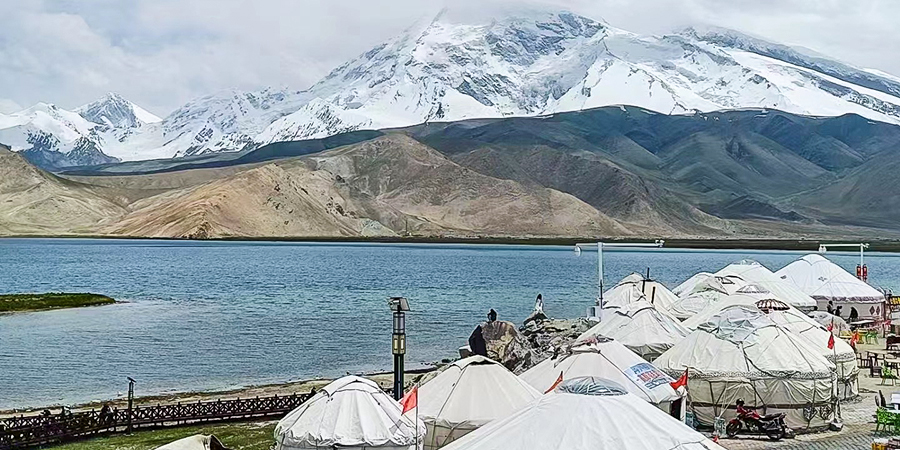 |
Note: If you want to spend another day here, you can stay in the Mongolia ger (CNY 40 per person) or in the brick house (CNY50 per person).
| Admission Fee: | CNY 50 (Excluding CNY10 for Border Permit) |
| Opening Hours: | 08:00-17:00 |
| Best Visit Time: | August, September |
Stone City
Meaning Stone City in Turki, Tashkurgan was so named after an ancient city, more than 2,000 years old. It is located in the north of Tashkurgan County, Xinjiang Province.
Famous for its location at the junction of the middle route and southern route of the ancient Silk Road, the Stone City is also the place where roads from Kashgar, Shache, Yingjisha and Yecheng to the Pamirs meet. Because of its strategic importance, it was made the capital of Puli Country in Western Regions during the Han Dynasty (206 BC-220). After the Western Regions were unified and ruled by the Tang Government, administrative offices were established here. Later in the Yuan Dynasty (1271-1368) the Government repaired its old buildings and enlarged its area. It was in the late Qing Dynasty (1644-1911) that the Government built a new city to the south and the Stone City was abandoned.
Built on a mound of 20 meters high (about 67 feet high), all that remains of the Stone City today are some parts of the periphery of city, such as the gate, city wall whereas the buildings inside the city had all collapsed. However you can still enjoy the view of the ruined city, the surrounding snow-crowned mountains, grasslands, rivers and even the flavor of national traits of the Tajik people.
|
|
- Last updated on Aug. 15, 2024 by Gabby Li -
